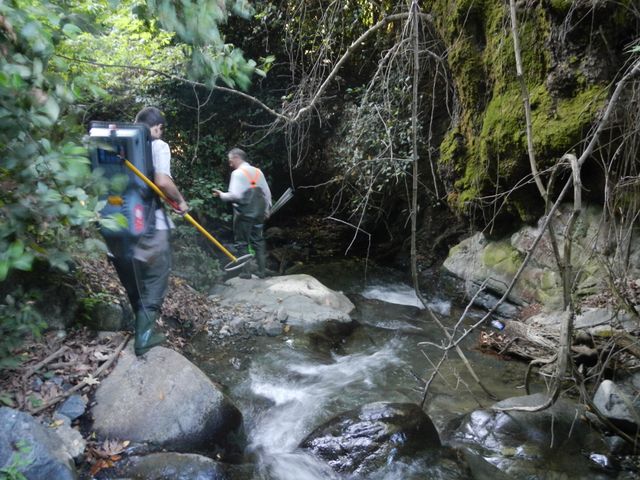Thinking about the Cyprus Expedition - Niki's shots from July 2012
Some of us are lucky enough to work in institutions that specifically have a mandate to do useful science - applied approaches that may benefit both our communities, our culture, our natural heritage. I work in such a place, the Hellenic Center for Marine Research.
I'm just thinking that it may be important to actively promote more, deeper and better work on reaching out to the society, in order to positively affect society and nature. Let me give some examples of how this may be better developed:
- Don't focus on science just for science's sake- find something useful to do. Useful for protecting the natural heritage. Make the science, technology and research we do immediately helpful towards pressing issues that need conservation solving - need support from scientists.
- Involve scientists in conservation projects. Conservation is a multi-faceted wildly integrated and difficult venture. Many environmental, physical and natural scientists are not aware of conservation here in Greece. They have a distorted and often prejudiced approach towards "conservationists" (who are rudely called "ecologists"by the public). Environmentalist scientists are unusually rare here - this niche is taken over by various do-gooders in NGOs, and amateur "tree-hugging" types.
-Scientists should work with environmental NGOs. NGOs may have a serious mandate and good business sense for fund-raising - and scientits will learn and will contribute to conservation actions through this cooperation.
-Conservation science is a new integrated approach; also other scientific pursuits use the conservation adjective now, see: conservation biogeography, conservation biology. These new streams of "hard", real scientific work are catching on.
-Get scientists to teach environmentally connected topics. Teaching is often something that make people learn and think. If more of our scientists teach the public, the authorities, they may see the connections among their science and the usefulness of doing specific projects. Also younger people such as students may be even more passionate for "protecting" nature.
-Get scientists to contribute to society in any way. This is outreach.
-Get scientists on TV or in motion pictures, on YOUTUBE or on blogs. Get them to show why they do what they do. Often behind all the conservative standards and protocol is a soft, glowing love for nature. Bring more of that out. If you bring it out- it becomes part of your identity. That way you do more useful science, science that speaks out and helps society.
Below are some shots taken by my friend Niki Chartosia who is now Visiting Professor at the University of Cyprus. We worked together during a day in the field at streams below the villages of Moutoulas and Gerakies in the Troodos. The shots show Vassilis Hatzirvassanis and I doing a scientific survey - obviously behind this is a passion for nature - the beauty, the wilderness. And the conservation questions - such as how to deal with a beautiful invasive trout species - the Rainbow Trout!.
.jpg) |
.jpg)




.jpg)



